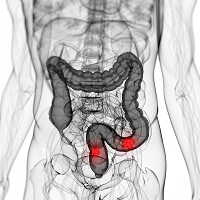According to a study published in the journal Clinical Gastroenterology and Hepatology, a team of researchers led by Bas Oldenburg, MD, PhD, University Medical Center Utrecht, analyzed data on 1,273 IBD patients (34% Crohn’s disease, 63% ulcerative colitis, and 3% unclassified) who had experienced a total of 4,327 surveillance colonoscopies between January 1, 2000 and January 1, 2014.
Surveillance is recommended for patients with long-term inflammatory bowel disease because they have an increased risk of colorectal cancer (CRC). To study the effectiveness of surveillance researchers determined the incidence of CRC after negative findings from surveillance colonoscopies (interval CRC). Upon monitoring the patients’ first and last surveillance colonoscopies, the team discovered 1.3% of the patient cohort developed CRC ,the median interval between the last colonoscopy and CRC diagnosis was 22 months. The team made sure to categorize which factors could have contributed to CRC occurrence (inadequate procedures, inadequate surveillance, or inadequate dysplasia management). This, in turn, meant the remaining five CRC cases (30%) were considered true interval CRCs. Oldenburg and team concluded, “In a retrospective analysis of patients with IBD participating in a surveillance program, the incidence of CRC was only 1%, which supports the implementation of longer surveillance intervals. However, the fact that 30% of CRC cases were interval cancers indicates the need for variable surveillance intervals based on risk factors for CRC.”
For more information please visit: www.cghjournal.org

